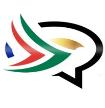SANEF is concerned about suppression of news channels reporting on crisis in Ukraine
3 March 2022
The South African National Editors’ Forum (SANEF) is concerned about the suppressing of a range of news channels reporting on the crisis in Ukraine. This is ranging from silencing independent news channels within Russia to channels such as RT (formerly Russia Today or Rossiya Segodnya) removed on the MultiChoice platform in South Africa.
The RT feed was blocked by MultiChoice's provider in Europe as a result of wide-ranging sanctions introduced by the EU against Russia in the aftermath of that country's invasion of Ukraine. This was followed by the blocking of RT from numerous news feeds and tech platforms globally.
We also strongly condemn the bombing of a Ukrainian TV tower in Kyiv that prevents citizens from accessing one of their news sources. Russian strikes on Kyiv TV tower brought down the main TV tower in the nation's capital killing five people on Tuesday and knocking out some state broadcasting. This violates the rights of media workers in this conflict.
While we support freedom of access to a diversity of views, we do not support disinformation on any channels; and appeal to all to report factually, impartially, and truthfully for the benefit of all their audiences.
We also note that disinformation is a global problem with deception techniques becoming more complex and sophisticated, causing confusion, and having the effect of undermining human rights and democracy. That is why all news organisations have the responsibility to actively counter any built-in biases and seek to be impartial in all their reports.
RT is a Russian state-controlled international television network funded by the tax budget of the Russian government; and as such widely perceived as a state propaganda tool. It is nevertheless a source of information from Russia, that viewers could access along with all other channels, to critically assess its credibility and information for themselves.
SANEF is not blind to the fact that in Russia, the authorities have imposed censorship on information about the “special operation” now underway. According to Reporters without Borders (RSF), Roskomnadzor, the Russian media regulator, has told the media in that country that they must “only use the information and data they receive from official Russian sources” or else they could be prosecuted for spreading false information.
We also note the RSF’s call on belligerents and international organisations to guarantee the safety of the Ukrainian journalists, including more than 1 000 foreign correspondents reporting on the ground in Ukraine, according to figures provided by the Ukrainian military, which issues accreditations.
Both Resolution 2222, adopted in 2015 by the UN Security Council (of which Russia is a permanent member), and international humanitarian law require that journalists are protected during armed conflicts in the same as any civilian, even when accompanying military forces for their reporting purpose.
Sanef calls on all platforms, including those on social media, to be vigilant in ensuring impartiality and in countering disinformation.
Issued by Sbu Ngalwa, Chairperson, SANEF, 4 March 2022

